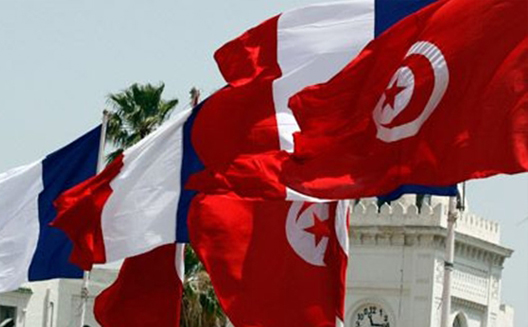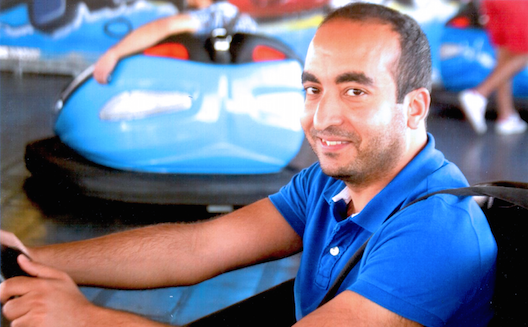Why Maghrebi entrepreneurs are launching in France

Here’s a thought: the Maghreb doesn’t lack entrepreneurs; they simply don’t work in their native region.
Many entrepreneurs from Morocco, Algeria and Tunisia choose to start their business abroad, specifically in France. The real question is why. Doesn’t the Maghreb have enough opportunities? Is the region that tough to crack?
To be an entrepreneur is to seize opportunities
Choosing France is not usually a decision of pro and con; it’s a natural evolution for Maghrebis studying or working in France.
“It’s an opportunity that presented itself at a certain time,” says Rania Belkahia, cofounder of Afrimarket, a platform that allows individuals in the diaspora to pay for products and services for their family back home. She launched the company with two French classmates at HEC Entrepreneurs.
“If we’re based here, it’s because it’s where our clients are,” she said.

Sami Ben Hassine also met his cofounder in France. His app, The Fabulous, helps users build the perfect morning routine. He’s convinced that his market is in the US and to smaller extent in Europe, so it was natural to start his company where his clients are.
Even if circumstances were different, he believes it would have still been tough for him to find the partners he needs to create his company in his native Tunisia because his friends and network have relocated to France.
“For young entrepreneurs, France is an ideal playground,” noted Youssef Tagemouati, cofounder of Tousfacteurs, a platform that offers delivers your parcels to and from the post office. He too met his partner at HEC Entrepreneurs.
“You can launch web and mobile projects with little capital, have relatively easy access to funding, and a play on a significantly big market,” he continued.
Ben Hassine concurred.
“Now, I realize that the ecosystem is really important.”
He believes that being in France allowed him to be surrounded with the right people from the start, especially with the incubator-like TheFamily and the Microsoft Venture accelerator.
“It helped avoiding many pitfalls… Every week we would meet successful entrepreneurs at TheFamily. Hearing their stories would boost us and make us feel like we were ready to conquer the world.”
In between Paris and London he can always find someone to help him out with a question, and can reach out to clients and providers, including big ones like Google and Apple.

Working in the Maghreb if the market is there
These entrepreneurs are not turning their backs on the Maghreb. They’re making their decisions with a keen eye for business.
For Belkahia, the Maghreb is a potential market. She’s in talks with a few players to develop her platform. For Tagemouati, the Maghreb is a place to save cash.
“For now, I’ve only considered Morocco as a possible location for my back office, which is five employees strong,” he says.
Others don’t see the business value yet; if they come, it’s only for pleasure. “On the second year, I realized that, once my network built, I could spend more time in Tunisia,” explains Ben Hassine, who works remotely from his hometown one week a month.
And yet, opportunities in Maghreb are plentiful. Some entrepreneurs choose to return to their home countries after studying or working in France.
“In Morocco, everything is still to be done, and one can easily adapt a business model that worked abroad,” says Mounia Rkha who returned to Morocco for personal reasons and decided to launch the now shuttered deals website MyDeal.ma.

“Morocco is in the midst of a transition and is ripe with opportunities for entrepreneurs: the early emergence of a middle class who’s thirsty for life and modern lifestyle,” adds Yassir El Ismaili who created Taxiii, the Moroccan taxi app that was acquired by Careem. “This kind of transition only happens once.”
Is the Maghreb really lacking an ecosystem?
Talking about an entrepreneurial ecosystem in Maghreb may be a stretch but Ben Hassine doesn’t believe it’s anything that should stop an entrepreneur.
“If you choose [to start your business in Maghreb], you absolutely have to become a “learning machine,” he says. “Everything there is to know about entrepreneurship is already online or in books. You have to take the time to read, take notes, and surround yourself with a couple people you can share this knowledge with.”
The lack of successful entrepreneurs and experience is only part the problem in the Maghreb countries. The absence of a cohesive legal framework as well as funding is another major hurdle.
“An entrepreneur will never stumble in front of administration obstacles, but it’s a pity to lose your time on filling papers and legalizing signatures when you could work on your product,” continues the Paris-based Tunisian entrepreneur.

Finding seed money is not impossible either but the money will probably come from abroad, he adds.
Still, you’ll have to have the patience to convince investors who see, for the most part, the Maghreb region as “far away” and “risky”, adds El Ismaili.
Does all that even matter?
All of the entrepreneurs I talked to agreed on one thing: there’s not one place better than the other to start a business; it all depends on your project.
If you’re interested in impact entrepreneurship and building up a new economy Maghreb is the place to go, says Rkha. On the other hand it you want to launch a highly innovative global product, then it’s probably not the best idea, she continues.
Another factor to take into consideration is your needs. If you need to raise a lot of capital or need support, France is probably a better choice, they all said. But Jouini believes if you have “a mature idea and enough cash to bootstrap, then Tunisia is a better choice.”
The important thing is to go abroad when the time is right, adds Jouini, who recently opened an Expensya office in Paris.

For Ben Hassine, if you have a good cofounder and some seed money, starting in Maghreb could be a wise move, as long as you learn to communicate in English to enter other ecosystems and get in an international accelerator when you have enough traction.
“I think this is something you cannot skip, even if you want to return to Tunisia afterward,” he said.
Going abroad is also a good idea if you need follow-on funding.
“The funds’ gravity centers remain London, Berlin, Paris and the US city,” Ben Hassine said. “That’s where you want to go for your post-seed run to have more leeway and get a better valuation.”
“If you want to start your company in Morocco, you better have worked abroad before, somewhere professional where you learn the basics like being rigorous, analytic, demanding, and respectful of your engagements” said El Ismaili.
“If [you chose] to start a company, it’s that [you love] challenges. So, where you start is not the issue, what matters is who you start your business with,” he concludes.


